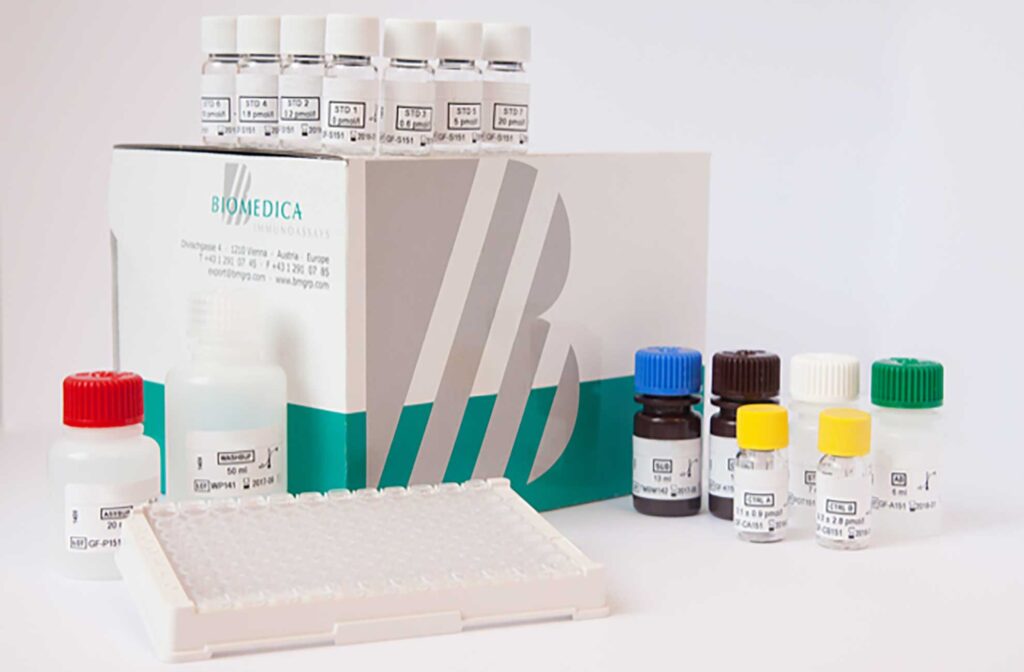Cardiac safety biomarker kits for translational research and drug discovery
Biomedica offers ELISA kits for the reliable quantification of the cardiac biomarkers NT-proBNP and NT-proANP both in human and rodent samples.
Biomedica´s bone biomarker assays have been designed to provide accurate and reproducible results for clinical and preclinical research.
The Biomedica ELISA kits are high-quality assays utilizing characterized epitope mapped antibodies to provide high specificity. These widely cited and easy to use assays come with two controls and with ready to use color coded reagents.
Bone biomarkers are valuable tools that provide insights into bone health, metabolism, and disease status. The use of biomarkers facilitates the diagnosis and treatment of bone diseases and provides a deeper understanding of bone biology. The specific bone biomarkers can reliably be measured in blood samples.

Complete ready to use ELISA kits
User-friendly & reliable.
ELISA kits for clinical & preclinical research
Sclerostin ▪ Dickkopf-1 ▪ Osteoprotegerin ▪ RANKL ▪ FGF23 ▪ Periostin ▪ Semaphorin 4D ▪ LRG ▪ IL-6
Highly specific ELISA kits that only measure the analyte of interest.
Periostin is a soluble extracellular matrix protein that plays a crucial role in bone biology. It is expressed in collagen-rich fibrous connective tissues. Periostin has functions in bone formation, remodeling, tissue repair, oncology, and in various inflammatory settings (1,2).
Leucine-riche alpha-2-glyoprotein (LRG) is a multifunctional protein that has been described in bone diseases. Elevated levels of LRG have been reported in patient with osteoporosis. The specific mechanism on how LRG may impact bone metabolism is not yet fully understood. Researchers are further exploring the potential use of LRG as a prognostic marker in cancer. A recent retrospective study has reported the prognostic value of LRG in breast cancer (3).
Semaphorin 4D (SEMA4D) is a protein that has been associated with various bone related disorders. Although its involvement in bone regulation is still not fully understood findings suggest a link between Sema4D and estrogen receptor signaling in breast cancer (4).
Fibroblast growth factor-23 (FGF23) is a hormone that plays a crucial role in phosphate homeostasis and vitamin D metabolism. FGF23 is produced by osteocytes, cells that are embedded in the bone matrix. Dysregulation of FGF23 can lead to various bone disorders like X-linked hypophosphatemia (XLH) and tumor induced osteomalacia (TIO) (5, 6).
We gladly support you by keeping you updated on our latest products and the developments around our services.